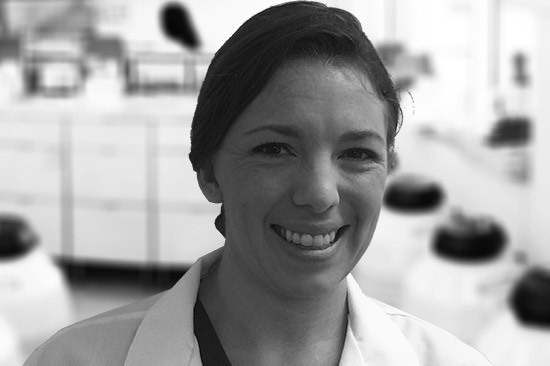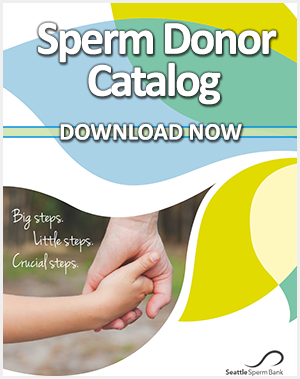Christine Ulbrich is a Donor Coordinator in Seattle Sperm Bank’s Phoenix clinic. Along with recruiting donors and helping them navigate the application and interviewing process, she also helps clients from our Seattle clinic select the right donor.
What is a typical work day for you?
My work days vary a lot. My main tasks include checking donors in and making sure their applications are complete, setting them up with blood work, reviewing donor profiles, doing genetic reviews, and ensuring all the necessary paperwork is done so we can match clients with the right donors. I also help in the lab with processing when we get busy or are short staffed
Aside from being healthy, what traits are you looking for in a sperm donor?
Ideally, we want them to be smart and outgoing; but the most important thing is that they are healthy, as our intended clients (parents) want happy, healthy children. We understand that talking about donating can be awkward at first, but they should be able to carry on a conversation. If the men are too shy or uncomfortable to get through the initial conversation then they usually don’t return for the next step, which is fine. We only want donors who feel this is the right decision for them.
As we get to know them, we want to ensure they are open enough to be forthcoming about their backgrounds so we can really see who they are as people. Then, once we’re better acquainted and move on to the genetic interviews, I look closer at any health details we need to explore more thoroughly.
We also like potential donors who are in decent shape. They don’t have to have bulging muscles, but we want them to be in decent shape and living a relatively healthy lifestyle.
I know the donor interviews and questionnaires are highly detailed and specific. But what are some unusual questions you get from donors?
One interesting question I get from donors is whether they can be notified when a woman gets pregnant with one of their samples. This shows they are thinking about the entire process.
Another one involves religious beliefs, which sometimes comes up during the genetic interview. But some donors are more specific about it. They want their sperm to be used only by heterosexual couples, or just Christian couples, or other select groups, but we don’t do that. We won’t put those kinds of restrictions on donations. A small number of men choose not to participate due to those reasons, but not many.
Since fewer than 5% of potential sperm donors qualify for the program, what tends to disqualify otherwise healthy men?
The sperm motile test [which gauges the sperm’s ability to move] eliminates most men from being donors. Because the processing that samples must go through kills off most of the sperm, men need to have a well above average sperm count for us to even create a viable specimen, and most men don’t. So that’s what eliminates most applicants, even if they are otherwise healthy. This can be surprising to men who already have children since they are obviously fertile, but you have to be well above average to make it into the program. We have high standards so we can give women samples that give them the greatest possibility of getting pregnant.
The second factor that disqualifies men are the results of their genetic tests. About 10% are disqualified because we find out they are a carrier for a certain disease, and this is often news to them. It’s also disappointing for us to not be able to work with otherwise excellent donors.
The fact that it is so difficult to qualify is why we are always looking for donors.
What is the most important thing men should understand before they consider becoming a donor?
The possibility of contact with the offspring in the future is important to know. Since we specialize in open identity donors, men need to be aware that when the offspring reaches 18, if their parents choose to tell them they are from a donor, they are welcome to reach out and make contact with the donor. And this makes some guys stop and think.
We never give out the donor’s address and phone number. It doesn’t work that way. Donors are still largely anonymous, but connecting them is something we facilitate if the offspring want that. They would contact us and we would get in touch with the donor on their behalf.
The other thing I always point out is that we have distributors all over the world, so there is a chance a donor may have offspring in other parts of the world, and this sometimes surprises men.
But I’ve found very few men decide to not go through with donating because of the possibility of being contacted. Still, they need to know about this so they can make the best decision for them. We certainly don’t pressure them or hold it against them if they choose not to continue with the program, because it must be right for them.
What is the most common reason given for donating?
Money is the main reason, at least initially. Though most come around to the idea that they are helping families and then that makes them see the bigger picture. Once in the program, most donors quickly realize they are doing a great thing.
Some donors come to us because they know someone—a friend or family member—who had a child using a donor, so they have a personal connection with the process. This isn’t a big group but probably more than one would think.
What is your favorite part of your job?
I love getting to know our donors! That is my favorite thing. I also enjoy talking with women who are interested in one of our donors. When they call me for more information I love bragging about my donors. If they want to learn more or get my personal impression of a donor I’m always happy to take the time.
We only accept men into the program who are genuinely good guys, so it’s easy to brag about them. Plus, I like having the opportunity to give my insight. We have staff impressions that women can read, but they can only reveal so much. A conversation works better.
Phoenix Sperm Bank has been in business for about two years so we haven’t released as many donors as the Seattle clinic has. But we’re getting there. And our clients are so grateful for the insight, and I love that part, too. Even if they don’t choose my donor, as long as they find the right donor for them that’s all I really care about.
I also like helping with our Photo Matching program. If a woman sends a picture of her partner or spouse we can help match her to a donor with similar physical characteristics or give other specific suggestions. This way the child can look as much like the two parents as possible. This is a service many clients find helpful since there are kid photos on the site, but not adult photos.
Hearing from happy clients is another favorite thing. I recently got an email from a client who sent pictures of her twins who were conceived with one of our donors. I was so excited! Because you feel connected to them, and I’m happy we helped someone. After all, that’s what this job is all about.


